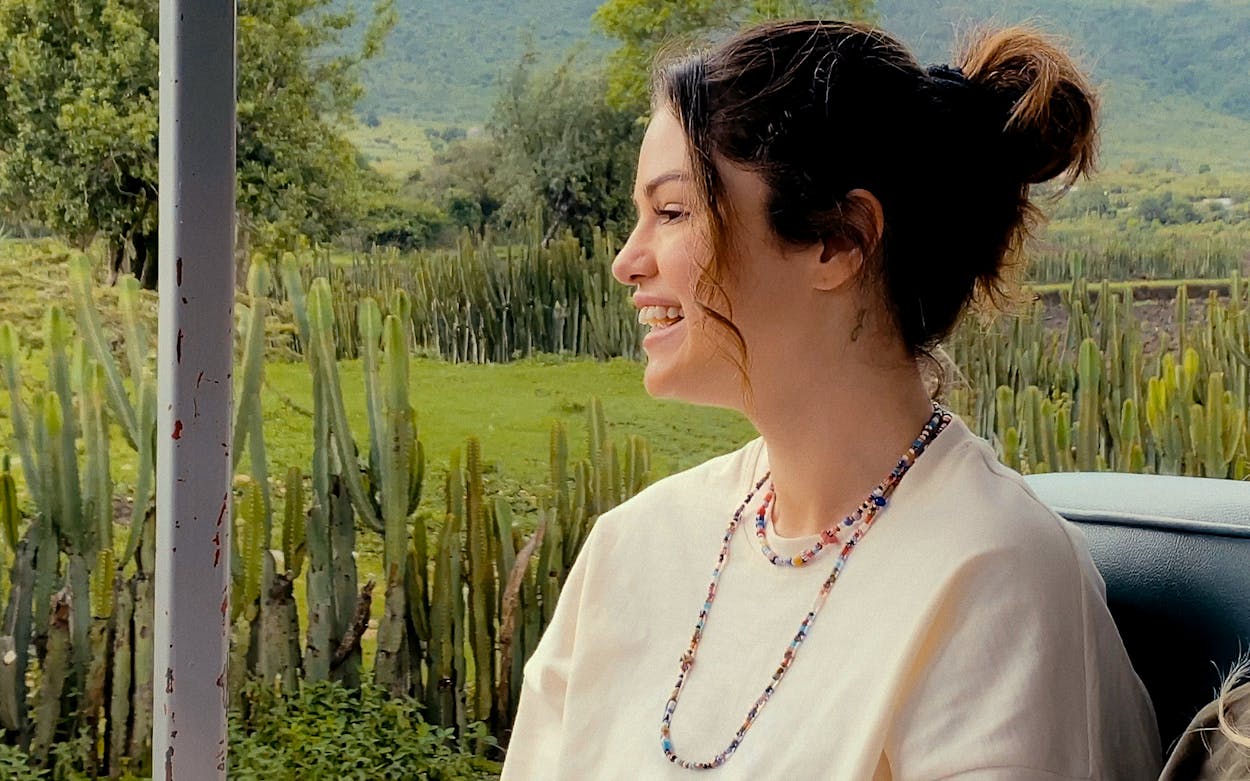“Let me make a promise. I’ll only tell you my darkest secrets.”
This is Selena Gomez’s solemn pledge, given only minutes into the Grand Prairie native’s documentary, Selena Gomez: My Mind & Me, released November 4 on Apple TV+. This undertaking will come as no surprise to the fans who are well aware of the superstar’s penchant for vulnerability, whether she’s sharing her struggles with mental health or speaking openly about her journey with the autoimmune disease lupus.
The film’s director, Alek Keshishian (Madonna: Truth or Dare, a staple of the celebrity self-produced documentary genre) doesn’t shy away from revealing the singer’s difficult moments. During the rehearsal for her 2016 tour, Gomez is seen crying to her managers backstage. “I have no idea what the f— I’m doing. . . . It sucks the life out of me and I don’t want to perform,” she sobs. Friends and family emotionally recount Gomez’s hospitalization in a psychiatric facility, which eventually resulted in a diagnosis of bipolar disorder. Before each of Gomez’s endless professional obligations, hands and makeup brushes flit around the singer as she stares despondently, the light gone from her eyes. It’s as if the camera, the stylists, and the hangers-on that surround her aren’t there. It’s almost as if Gomez herself isn’t there.
Even for those of us who have grown up watching Gomez on-screen, it’s clear that there’s a side to the actor-singer we’ve never seen before. Over the course of six years of footage whittled down to a 95-minute film, we learn more about Gomez’s tumultuous relationship with fame, bearing witness to difficult moments such as the decision to cut short her Revival tour and a slew of media interviews that made Gomez feel “cheap” and “like a product.” The film is raw but at times overwrought as it weaves sorrowful diary entries and intimate conversations with baby videos and tour footage, emphasizing the fact that despite all the glitz and glamour, Selena Gomez is still figuring herself out like the rest of us. Multiple times throughout the film, she repeats that after working since the age of seven, she no longer craves fame. But what Gomez craves instead remains unclear.
The role of a celebrity documentary is not just to eliminate some of the elusiveness that comes with fame, it’s also to redefine a certain image and present a new “era” for the subject. In the case of My Mind & Me, Gomez isn’t just giving her fans insight into her health struggles; she’s also establishing herself as a philanthropist and a mental health advocate. She desperately wants to convince her fans—and herself, it seems—that she’s more than just a pop star with a Disney past.
But while Gomez’s mental health struggles are apparent, other aspects of her narrative don’t come across as effectively. Culture writer Sydney Urbanek writes of the celebrity-documentary formula, solidified in Beyoncé’s 2013 documentary, Life Is But a Dream: “There’s also the use of prophetic home video footage from her childhood, some staged ‘candid’ moments with her loved ones, and the odd performance segment to break things up.” My Mind & Me does not escape this convention—the quick jumps from diary entries and rehearsals to home videos and world trips keep the story shallow. Perhaps the biggest example of confusion is when an interview triggers a memory of Gomez’s Disney past. “You know what it is, is it made me feel like Disney,” she cries, before the scene cuts to Gomez smiling and greeting fans. There are very few moments where the star seems happy about what she’s doing, and the choice not to include them—if they even exist—further emphasizes that it’s unclear why Gomez is putting herself through the gauntlet of celebrity. Throughout My Mind & Me, the singer reiterates that though she doesn’t want to be famous for its own sake, she wants to use her influence for good. Yet, scene after scene, we watch Gomez break down. If she really wants to be a philanthropist, why does she continue to partake in a life that seems to make her desperately unhappy? Keshishian doesn’t show us.
At one point, Gomez is asked about her ultimate dream. She responds, “That I could be a voice for others who maybe don’t know what’s going on or what they’re feeling.” If mental health advocacy is her passion, Gomez is clearly making strides, having recently created a mental health fund and a free “mental fitness” platform. But, by glossing over some of the concrete work Gomez has done, the film leaves her narrative incomplete. Gomez “only” wants to tell us her darkest secrets. The lighter secrets are left unsaid.
- More About:
- Music
- Film & TV
- Documentary
- Celebrities
- Selena Gomez
- Grand Prairie






